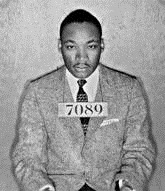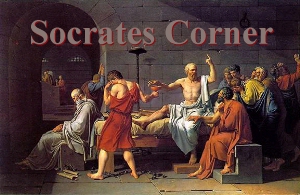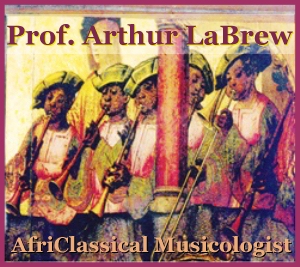45th Anniversary—Dr. Martin Luther King in Grosse Pointe

 “Every city in our country has this kind of dualism, this schizophrenia, split at so many parts, and so every city ends up being two cities rather than one. There are two Americas.”
“Every city in our country has this kind of dualism, this schizophrenia, split at so many parts, and so every city ends up being two cities rather than one. There are two Americas.”
–Martin Luther King, The Other America (1968)
My name is Stone Allen Washington. I am a sophomore at Grosse Pointe South High School. Three years ago I was first told by my seventh grade English teacher, Mrs. Tamara Duffield at Brownell Middle School that the famous Dr. Martin Luther King gave a speech at Grosse Pointe South High School back in the 1960s. When the anniversary of that famous occasion came this year my father, Professor Ellis Washington, did some research and indeed verified that Dr. King came here and that this year marked the 45th Anniversary of when Grosse Pointe South High School hosted this landmark speech by Dr. Martin Luther King Jr. on March 14, 1968, just three weeks before his assassination on the second floor balcony the Lorraine Hotel in Memphis, Tennessee—April 4, 1968.
This was not King’s first time speaking in Michigan for five years earlier Dr. King had already visited our neighboring city of Detroit on June 23, 1963 and led a march for racial equality in downtown Detroit where he gave an early version of his most famous “I Have a Dream” speech (August 28, 1963).
On a somber and stark winter’s day 45 years ago on March 14, 1968, 2,700 people gathered in the gymnasium to hear Dr. Martin Luther King speak at my high school—Grosse Pointe South High School in Grosse Pointe Farms, Michigan. His speech was titled, “The Other America,” in which Dr. King contrasted the lofty language of the Constitution and the Bill of Rights and the Declaration of Independence which proclaimed, “That all men are created equal. That they are endowed by their Creator with certain inalienable rights…” In contrast, King asserted that truly there are two Americas—one black the other white. In the other America speech King spoke about the America for the black community, where multitudes of black people in America were unjustly shackled down and held back from enjoying the American Dream by racial segregation and corrupt Jim Crow racial laws.
Dr. King revealed to the audience the good America, an America that is prosperous, plentiful and where people in this good America have the freedom to pursue whatever dream they have in this country. But he reminds everyone of the bad America, an other America void of freedom, justice, and equal rights under the Constitution. Throughout this exciting speech Dr. King courageously champions the cause of black people… his people who in 1960s America were suffering in constant agony, white racism, and economic injustice manifested by the poverty-stricken and servile jobs they are forced to take even those growing numbers of black people who possessed college degrees because of racial discrimination were forced into servant jobs. This injustice caused many black people to view their lives as hopeless; and they began to be seduced to give up on their family, careers, and their futures.
For too long, Dr. King intones, America has closed its eyes to its Black brothers and sisters. America has failed to realize the deep hatred toward the black community, a hatred which clouds the freedom and rights promised to them through past battles and wars. Dr. King said:
And what is it America has failed to hear? It has failed to hear 3 out of 8 that the plight of the Negro poor has worsened over the last twelve or fifteen years. It has failed to hear that the promises of freedom and justice have not been met. And it has failed to hear that large segments of white society are more concerned about tranquility and the status quo than about justice and humanity.
Dr. King warns that as time passes, as America continues to ignore and deny these tribulations that have been pushed onto the oppressed lives of black people, these problems of racial injustice will lead to societal destruction; this division between the races will only grow worse and result in continual hatred, moral and political war with all humanity. Dr. King further spoke:
Our destinies are tied together. Whether we like it or not culturally and otherwise, every white person is a little bit Negro and every Negro is a little bit white. Our language, our music, our material prosperity and even our food are an amalgam of black and white, so there can be no separate black path to power and fulfillment that does not intersect white routes and there can ultimately be no separate white path to power and fulfillment short of social disaster without recognizing the necessity of sharing that power with black aspirations for freedom and human dignity. We must come to see… yes we do need each other, the black man needs the white man to save him from his fear and the white man needs the black man to free him from his guilt.
According to Dr. King’s speech Blacks and whites are bound together by destiny. In other words, all races will rise or fall together unless the race question is finally dealt with in a equal and just manner. Every white person has something in common with a black person. We are all similar in biology, culture, ethnicity and language. Dr. King explains that there can be no fulfillment in the paths of both races if they do not first recognize their relations with each other and their intertwined fates as Children of God. The black man needs the white man and the white man needs the black man, together they shall prosper, apart they shall fall. Dr. King gave a poetic history of the black man and the white man in America and said:
Before the Pilgrim Fathers landed at Plymouth we were here. Before Jefferson etched across the pages of history the majestic words of the Declaration of Independence we were here. Before the beautiful words of the Star Spangled Banner were written we were here. And for more than two centuries our forbearers labored here without wages.
We are going to win our freedom because both the sacred heritage of our nation and the eternal will of the Almighty God are embodied in our echoing demands. So however difficult it is during this period, however difficult it is to continue to live with the agony and the continued existence of racism, however difficult it is to live amidst the constant hurt, the constant insult and the constant disrespect, I can still sing we shall overcome.
We shall overcome because the arc of the moral universe is long but it bends towards justice.
I remember studying in my AP America history class that Blacks were physically in America as early as 1502, just 10 years after the great Italian explorer Christopher Columbus discovered America in 1492. However, further research alerted me to the fact that a black man had served as Columbus’s chief navigator and that there were other blacks in America long before Columbus arrived according to Professor John Jackson’s important book, Man, God, and Civilization. Professor Jackson wrote:
… [I]n 1492 when Christopher Columbus was approaching the shores of the Americas, his Chief Navigator was a Black Moor from Mauritania name Don Pietro Olonzo Nino, Captain of the Flag ship—Maria, who logged in his diary as their ships approached the shores of the Americas, seeing Black Africans on land, as well as some sailing in large canoes leaving the shores of the Americas, heading out to sea in the direction towards the African Continent (John G. Jackson, Man, God, and Civilization (1972, reprint 2008), p. 286.
Dr. King said that black people set foot on American soil way before America even had its name and we were here way before Americans were recognized as a people under a free country separate from the British crown. Blacks inhabited this country before the Puritans and the Pilgrims came her in the early seventeenth began a new civilization under the Word of God. Blacks inhabited this country before Thomas Jefferson wrote the Declaration of Independence, declaring America’s independence separate from the tyranny of King George III and the British Empire’s control. Dr. King states that the black race will win its freedom because of their sacred heritage throughout past centuries and God’s almighty power that is embodied in the echoing demands of his children.
In conclusion, Dr. Martin Luther King delivered his profound final words to the astonished audience at Grosse Pointe South High school with a collection of civil rights hymns, Bible quotations and a poetic rhetorical flourish:
We shall overcome because the Bible is right. “You shall reap what you sow.” With this faith we will be able to hew out of the mountain of despair, a stone of hope. With this faith we will be able to transform the jangling discords of our nation into a beautiful symphony of brotherhood.
Indeed, we shall all reap what we sow, in life and in death. With the powerful faith that Martin Luther King Jr. upheld, he and the black community were able to undermine the evil hatred brought upon them by racist whites and systematically eliminate the tyrannical segregation imposed on blacks that has festered on earth for hundreds and hundreds of years in the form of malicious enslavement. In King’s last words he pronounces that these transcendent prophesies imbued with faith in God, hope for all humanity and confidence in man to create a more just society for all races of people—Blacks, Whites, Hispanics, Asians, Indians and all people of color. Dr. King ended his lengthy yet profound speech with a victorious crescendo of declaration that truth, justice, peace and love will one day triumph over lies, injustice, racism and hate. Dr. King’s concluding words to his famous The Other America speech was spoken for the ages:
With this faith we will be able to speed up the day when all of God’s children all over this nation – black men and white men, Jews and Gentiles, Protestants and Catholics will be able to join hands and sing in the words of the old negro spiritual, “Free at Last, Free at Last, Thank God Almighty, We are Free At Last.”
| Sophomore, Grosse Pointe South High School |
…………….
Originally Posted at Global Politician
Category: Commentary







Hello Stone,
Loved your article. My name is Ron Burgess and I’m a member of the Detroit Historic Museum’s “Black Historic Sites Committee.” We are hosting a breakfast on June 23rd commemorating the Detroit Walk to Freedom. I’m a videographer and have been told that pictures from Dr. Kings speech at your school in 1968 will be included in some clips I will be editing. Can you share any information (pictures) taken at the event that I may include in our short video?
Sincerely
Ron Burgess 313 567-3776
Unfortunately sir I can only offer the advice of looking up pictures of Dr. King in Grosse Pointe on google images. There are a couple of pictures there I believe. Many blessings for your upcoming breakfast.
Hello Stone,
Loved your article. My name is Ron Burgess and I’m a member of the Detroit Historic Museum’s “Black Historic Sites Committee.” We are hosting a breakfast on June 23rd commemorating the Detroit Walk to Freedom. I’m a videographer and have been told that pictures from Dr. Kings speech at your school in 1968 will be included in some clips I will be editing. Can you share any information (pictures) taken at the event that I may include in our short video?
Sincerely
Ron Burgess 313 567-3776
Unfortunately sir I can only offer the advice of looking up pictures of Dr. King in Grosse Pointe on google images. There are a couple of pictures there I believe. Many blessings for your upcoming breakfast.